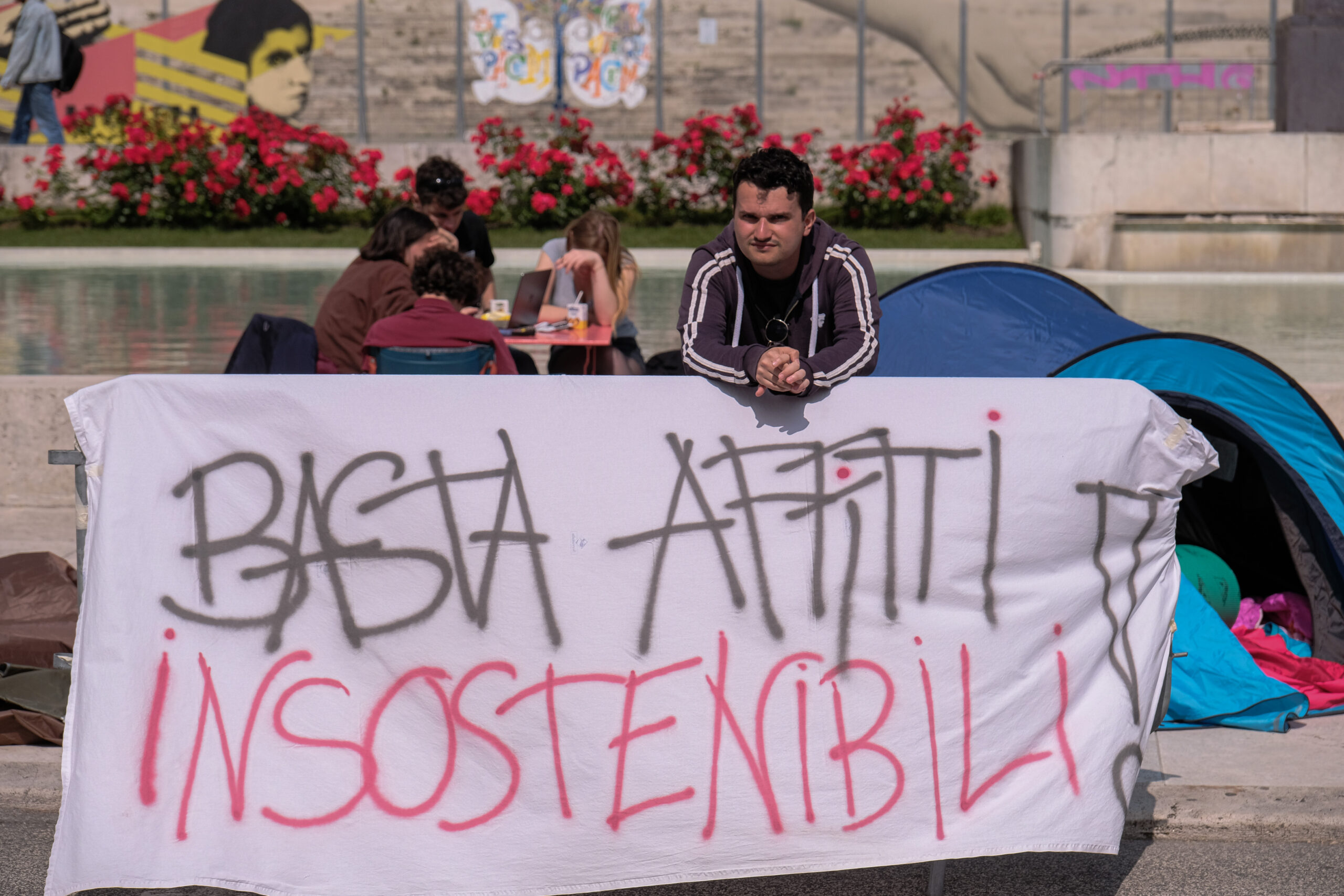Because it is wrong to talk about expensive rents

The boys in the tents signal a real problem, which however is not that of high rents, but of the imbalance with respect to the levels of wages and salaries. Sergio Giraldo's analysis
The number of tents pitched by students in front of university buildings is growing, as is the number of university towns where protests are taking hold. There are now a dozen urban centres, large and small, in which off-site students stage the original complaint against the cost of housing, launched by the student of the Milan Polytechnic Ilaria Lamera .
With the spread of the mobilization, it is to be hoped that this will not end up seasoned with a plate of new sardines, which will trigger a deleterious generational clash. In fact, the boys in the tents signal a real problem, which however is not what they themselves, many media and some politicians hastened to label "expensive rents".
THE REAL RENTAL PROBLEM
Talking about high rents means directing the discussion by focusing attention on the house and the owners, who perhaps a certain côté likes to portray as enriched cynics, committed to accumulating ragged banknotes with greed. A narrative inspired by Charles Dickens and aimed at emphasizing a hypothetical cause (the "too high" rent) which causes a malign effect (the impossibility or extreme difficulty of having a university education).
It is a pity that this description places what is actually an effect as a cause. The problem is not that rents are high in absolute terms, but that they are high relative to wage and salary levels. Housing rents in college towns reflect market conditions, the labor market does not. It is from this blatant asymmetry that the problem arises. The purchasing power of wages and salaries has dropped dramatically in recent years. According to the OECD, Italy is the only European country in which average annual wages between 1991 and 2020 have even fallen in real terms (by 3.5%): in Germany they have increased by 33%. In our country, in 2022, against a nominal growth of 2.3% in wages, the lowest growth in the whole European Union, inflation was 8.1%. The collapse of real incomes largely explains why many things cost "too much" today. We have already spoken here, for example, of the rise in average car prices, which have increased by 45% in just a few years. If the salary of mum and dad, both workers, is not enough to send their son to study in Bologna, there is a problem of income, not of rent.
Therefore, the problem is broader and does not concern the expensive (rent) but the decline (purchasing power). Caught between inflation, tax burden and wage deflation induced by the rigidity of the single currency, the purchasing power of Italians has undergone a dramatic decline over time. This account must also include cuts in public spending on services such as health, public transport, education, which are a form of income for the citizen, at least as long as they cost less than private ones. To date, then, there are 112 expired national collective agreements still to be renewed, with around seven million workers affected.
THE CONTRIBUTION OF AUSTERITY
This analysis, however quick, cannot escape the fact that not many public investments have been made due to the austerity to which this country has been subjected for thirty years. Between 1995 and 2019, Italian public finances always showed a primary surplus (difference between public revenues and expenditures measured as a percentage of GDP), apart from the exception of 2009. The European growth and stability pact, the reform of which is under discussion in Brussels, is an economically depressive and fiscally regressive straitjacket. So if, despite the law n.338 of 2000 on residential construction for students, regions and municipalities have not developed serious projects it is also because the internal stability pact between the central state and local authorities (consequence of the European one) has severely limited, when not prevented, the possibility of making investments. Now the PNRR is making 300 million available for student housing: that is, Europe which forbade us to make debts for public housing and for students now, your goodness, allows us to do so.
In all of this, the left has a good time invoking exceptional measures, expropriations, requisitions and rent caps. A suggestion, the latter, to which even someone in the centre-right seems to be familiar: it is to be hoped that the experience of the useless price cap on gas has helped to understand that there could be nothing worse.
The left offers punitive solutions to home ownership, not only to point out an easy target, but above all to hide the role it has played in ten of the last twelve years in which it has governed. The great subtraction lies there: in the jobs act and in the erosion of purchasing power as a result of blind adherence to the European model, which curbs domestic demand, keeps wages low and imposes austerity in public finances. The problem of off-site students is actually a problem of the purchasing power of wages and salaries and is resolved by rebalancing a balance that has been off the scale for too long.
This is a machine translation from Italian language of a post published on Start Magazine at the URL https://www.startmag.it/economia/problema-affitti-stipendi/ on Sat, 20 May 2023 05:23:39 +0000.
